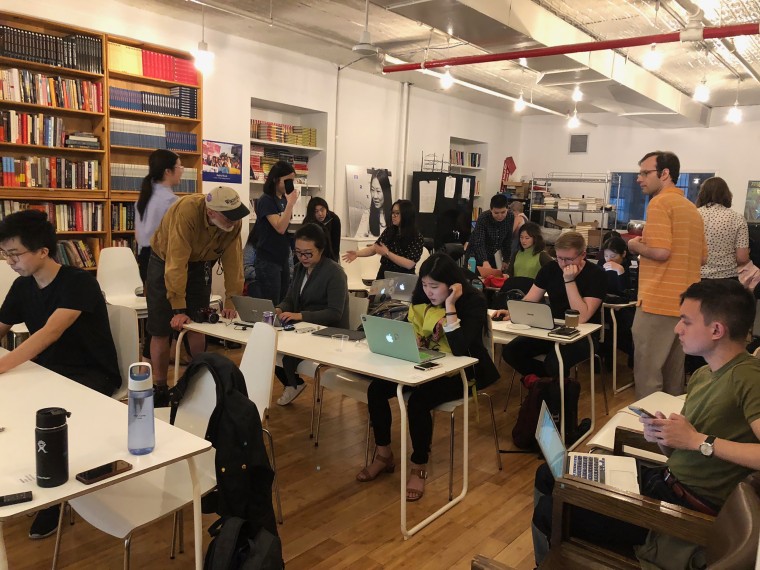In an effort to work against the erasure of Asian Americans in literature, national nonprofit organization Kundiman will host its second Wikipedia Edit-a-Thon for Asian American Literature for Asian Pacific American Heritage Month. The event is scheduled to take place May 5 in New York City in collaboration with Wikimedia NYC.
Similar edit-a-thons have taken place around the country on subjects including art and feminism, and art from the African diaspora. In 2014, the Smithsonian Asian Pacific American Center hosted the first “Wikipedia APA.”
With around 18 billion page views per month, Wikipedia is one of the most viewed websites in the world. But the online encyclopedia has received criticism for not having enough history by people of color due to most entries written by white men.
According to Kyle Lucia Wu, programs and communications manager at Kundiman, the idea for the edit-a-thon was driven by the questions: “How do I find books about Asian American writers? Where’s the representation of Asian American characters?” Wu said when she was growing up, the only Asian American characters written by an Asian American author she could think of were from “The Joy Luck Club” by Amy Tan.
“I wanted to be a writer, and all I did was read, but I never considered the possibility that there could be a book centered with a character like me, so when we were thinking about reframing Wikipedia, I was thinking about the reader who might not know about the different resources that exist for finding about writers of color,” she said.
Wu said the first thing the organization did was look at the Wikipedia page for Asian American writers, which she said listed around 200 writers.
“That isn’t a large number and it was only centering East Asian voices and it had the rest of the Asian Americans underneath,” Wu said. “We wanted to reform this page to be more representative of the entirety of Asian American writers, and we want to add people to it because looking at the list, there’s so many writers that I know and love who aren’t on here.”
She said that aside from just adding authors and books, they also wanted to be sure to include Asian American literary organizations or publishers such as the Asian American Literary Review and Kaya Press, for which volunteers added pages to Wikipedia during the first edit-a-thon. Other entries that have been added include pages for Justin Chin, Tanwi Nandini Islam, Alice Sola Kim, Rachel Kong, Elaine Castillo, Esme Weijun Wang, Shoba Rao, Fatimah Asghar, Patrick Rosal and Weike Wang. Altogether, they were able to add 20,000 words to Wikipedia.
“I’ve noticed with a lot of writers of colors, sometimes [their pages] can be strangely phrased or insensitive of where they’re from or where their parents are from ... so I think, for us, it’s important to be writing about these writers as writers,” she said. “Sometimes the way they’re phrased can be strange because Wikipedia is edited by a majority of white men, which is another reason this event is important, too.”
Ultimately, Wu said they just want to be able to create more accessibility when it comes to public resources and information surrounding Asian American literature.
“It’s just a tangible way for us to work against the erasure of Asian American voices, to work toward visibility and accessibility,” Wu said. “Wikipedia is one of the most popular websites in the world. When are you ever allowed to take a popular platform and change it? There’s so many things that we cannot change about Asian American representation, but through this, we can actually help those information gaps and that’s why it’s so important for us.”
Follow NBC Asian America on Facebook, Twitter, Instagram and Tumblr.

